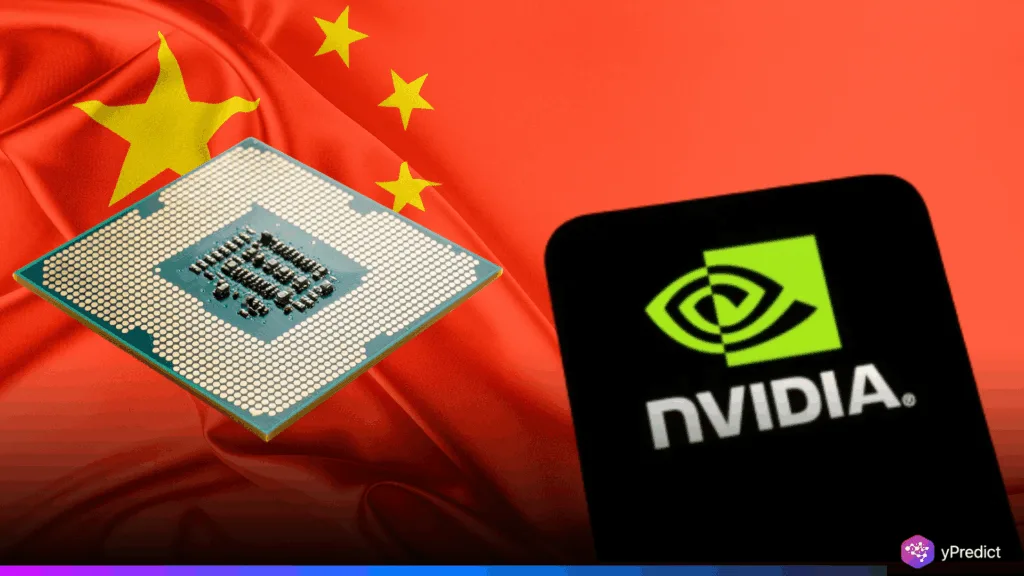
Chinese regulators are questioning the security of Nvidia’s H20 chips produced for the domestic market. The Cyberspace Administration of China (CAC) is leading the investigation, which focuses on AI chip security. It demanded that Nvidia demonstrate that the chips are safe and hygienic. Furthermore, the US tech giant’s future in the Chinese AI market is now at risk as it negotiates trade restrictions.
Is Nvidia Prepared for China’s Demands Now?
Nvidia claims that its chips are safe, but the Chinese government is demanding evidence of their reliability. The H20 chip has raised new concerns about cyber threats because it was designed for China to adhere to US regulations. State media reports contend that stringent inspections must be performed on any chip used on vital infrastructure.
Furthermore, the debate over AI chip security intensified when allegations emerged linking Nvidia chips to potential remote access capabilities. Chinese officials view the risk as more than just a theoretical one, as they are cautious about foreign control over digital infrastructure. Thus, recent disturbances in other nations were mentioned as a reminder of these risks
Why AI Chip Security Faces Global Scrutiny
People’s Daily published an article titled “How can we trust you, Nvidia?” that sparked institutional and public discussion. It emphasized Beijing’s view that digital networks and data protection are part of national defense. The article cautioned against the use of what it referred to as “sick chips,” equating network security with territorial integrity.
Nvidia swiftly refuted every accusation, stating that none of its products have backdoors. However, the Chinese authorities appear to be unhappy. The CAC acknowledged that reports from the US and expert concerns regarding tracking mechanisms being pushed into advanced semiconductors were the catalyst for its investigation.
The conflict over AI chips is a reflection of the US-China tech war. Nvidia is in a difficult position as it tries to satisfy China’s fiercely competitive AI market. Moreover, following Washington’s export laws. Beijing, meanwhile, continues to put pressure on regional actors to become less dependent on foreign technology and more self-sufficient.
AI Chip Security Now Demands Full Transparency
Chinese multinational corporations are being reminded that local law compliance is a must. Thus, businesses like Nvidia are under more pressure as a result of China’s growing control over hardware integrity and data protection. The investigation’s findings might establish a standard for other international tech companies. For Nvidia, maintaining market share isn’t the only goal. Additionally, it’s about siding with two superpowers whose laws are very different.
Future cooperation between US and Chinese chipmakers may depend on new frameworks for global trust. Businesses with open-source components, secure architectures, and transparent audit trails may stand a better chance. The focus is still firmly on AI chip security for the time being.
Will Nvidia Rebuild Trust in China’s Market?
The Nvidia-China dispute highlights the escalating conflicts between national security and innovation. As the demand for high-performance chips increases, so do concerns about their internal mechanisms. Additionally, data protection is no longer only seen as a technological problem but is now seen as a top national priority.
As cyber threats change, governments are becoming less willing to import hardware that isn’t fully transparent. Additionally, Nvidia needs to figure out how to strike a balance between openness and competition before China decides to leave.






